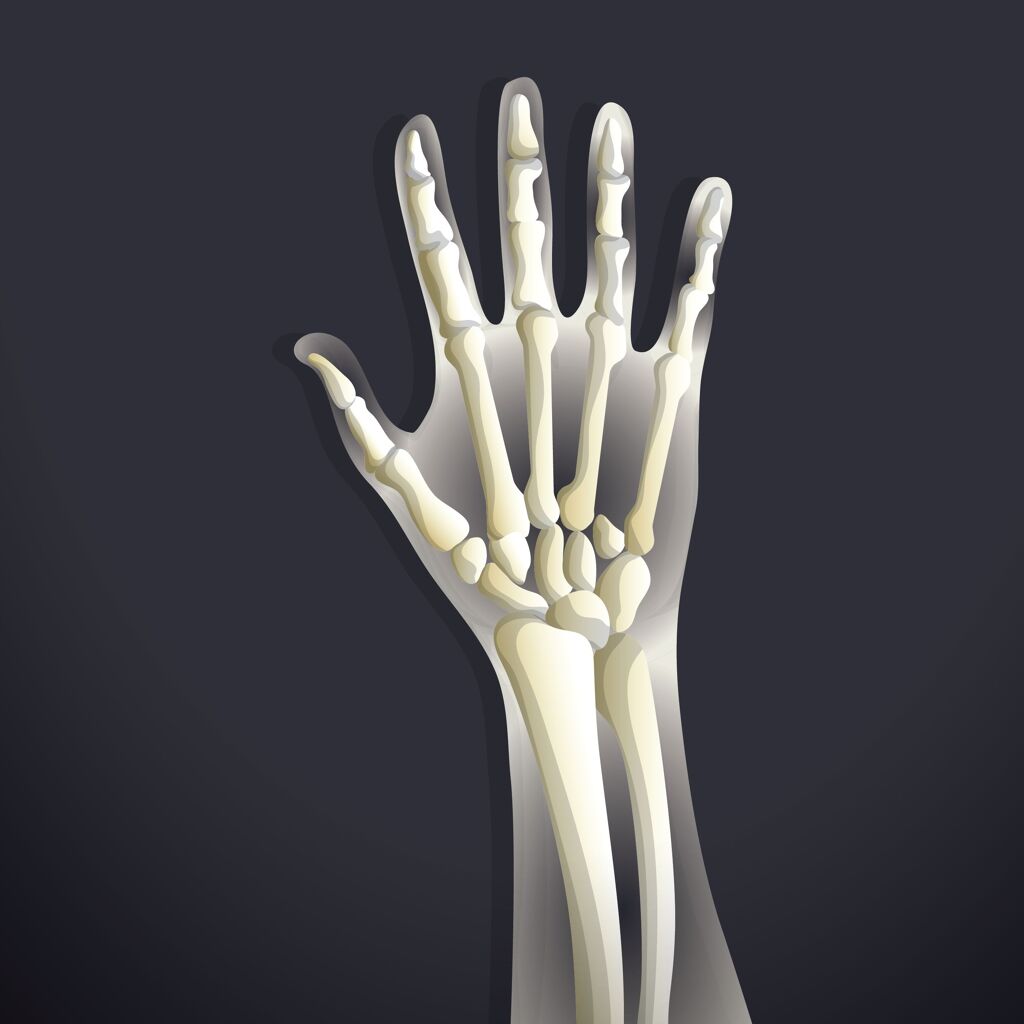How To Treat Chronic Constipation

Do you suffer from MS and constipation? Do you know what you can do to resolve your constipation? If you are struggling with these issues, then read on for the details!
In this blog on constipation, you will learn:
- How constipation and digestive issues are quite common with Multiple Sclerosis (MS)
- How diet and lifestyle are often the reasons for being constipated
- What specific steps you can take to resolve constipation
Constipation can be resolved by many diet and lifestyle changes. It may be due to Multiple Sclerosis (MS) or not. Either way, natural changes you can make at home can help resolve, or at least improve, your constipation. This blog will give you specific things you can try at home and applies to people with MS and to people who don’t have MS.
In previous blogs, we discussed the underlying root causes of constipation and which lab tests will help you to find the cause(s).
What is Multiple Sclerosis (MS)?
- In the US, 1 million people are living with MS (National MS Society, 2023)
- MS is the most common non-traumatic cause of disability in young adults today (Preziosi G, 2018).
- MS is unpredictable and affects different people in different ways.
Multiple Sclerosis is a chronic disease affecting the central nervous system, including the brain and spinal cord. It is an autoimmune condition in which the body attacks itself by mistake.
In MS, the immune system attacks nerve fibers and the myelin sheath in the brain and spinal cord. The myelin sheath is the fatty tissue that protects nerve fibers. The autoimmune attack damages the myelin sheath which normally protects nerves. Myelin, nerve fibers and neurons in the central nervous system (i.e., the brain and spinal cord) are damaged.
With myelin damage, the nerves become damaged leading to communication problems between the brain and the rest of the body. Normally, nerves transmit electrical signals to help with sensory perception and movement. In MS, nerve signaling and overall body function is affected, including the digestive tract. The damage to myelin, neurons and neurological pathways eventually leads to neurodegeneration and neurological symptoms.
What is Constipation?
Constipation is not having a regular bowel movement or being unable to completely empty the bowel. It is generally defined as having fewer than three bowel movements a week. Constipation can cause stools to be hard and lumpy, or unusually large or small. Constipation is a very common issue with MS and often becomes chronic.
Can we Treat Chronic Constipation?
As mentioned, we always need to get to the root cause of any medical condition or symptoms. Then we are best equipped to move forward with the most effective treatment. In the case of chronic constipation, we need to determine if it is due to things like:
- MS or some other disease
- IBS or SIBO
- Gut dysbiosis
- Gut infections or pathogens
- Food intolerances or insensitivities
- Diet
- Stress
- Other issues
Please see our recent blog on the underlying root causes of constipation. We have also written on the lab testing that can help to identify the root cause(s) of constipation.
What are the Treatments that Resolve Constipation?
Diet and lifestyle changes are often the cause, or a very big contributor, to issues with constipation. These are usually the first step in treating constipation. Even before lab testing, you can start to incorporate some of these things yourself in an effort to improve your constipation.
Diet & Constipation
There are certain foods within a healthy diet that can help constipation. If you are not consuming any of these helpful foods, that may explain your constipation. Even if constipation is due to a condition like MS, it is still important to get the basics, like diet, right.
Fiber
A well-rounded, healthy diet includes foods for good digestion and regular bowel movements. This includes eating lots of fresh fruit and vegetables to get enough fiber. Pulses (beans, lentils and peas) are also high in fiber. If you are struggling with constipation, one thing to try is high-fiber prunes or figs (in whole fruit or juice form). Prunes have a lot of insoluble fiber and sorbitol, which is a natural compound with laxative properties. Try 1/2 to 1 cup of prune juice in the morning to get things moving. You can also eat dried figs or prunes. Taking one to two servings every day can help increase fiber intake and resolve constipation.
Chia Seeds
Chia seeds are a great source of fiber. They have more fiber than dried fruits, cereals or nuts. Chia seeds are mainly insoluble fiber, with some soluble fiber. The insoluble fiber bulks up stool to prevent constipation. Insoluble fiber attracts water into the stool, so it is softer and easier to pass with less straining. Insoluble fiber can help with good bowel movements and regularity.
Chia seeds also have healthy fats, plant protein and antioxidants. One tablespoon of chia seeds provides 6 grams of fiber, 3 grams of protein, 5 grams of fat (mainly Omega-3) and 80 calories.
Chia seeds absorb water and swell up. It is best to eat chia seeds that have already been soaked in liquid or are served with a moist food, such as oatmeal or yogurt. Avoid eating dry chia seeds by themselves as they could potentially swell up once they are in the esophagus.
We recommend a chia pudding with full fat coconut milk and some berries. A healthy coconut chia pudding is great for breakfast or dessert.
Coconut Chia Pudding (serves 4)
Ingredients:
1 14-ounce can full fat coconut milk
5 tablespoons chia seeds
1 tablespoon raw honey or maple syrup
1/2 teaspoon pure vanilla extract
Tiny pinch Himalayan or sea salt
Blueberries, strawberries, raspberries or a mixture of various berries
Instructions:
Stir together the coconut milk, chia seeds, honey or maple syrup, vanilla and salt so that the chia seeds are evenly distributed throughout. Cover and refrigerate overnight. Give the mixture one more stir before bed.
In the morning, stir once more to evenly combine the seeds throughout. Pour one portion into a bowl, add the berries of choice and enjoy!
To Read About Blog Topic, Scroll Down
Want To Work With Our Clinic?
Do you have a chronic or mystery illness that no one has been able to help you with? Are you simply wanting to re-connect with a healthier version of yourself? It’s Time To Finally Feel Better!
Fats
Get enough good fats in the diet. A low-fat diet can contribute to constipation. Use olive and flaxseed oils, which have a slight laxative effect. Other good fats to include are avocado and fatty fish such as wild salmon, sardines and mackerel.
Constipating Foods
Certain foods are constipating. Diary is one. Lactose can produce methane gas. This slows down the transition time for food to travel through the gut. This can cause constipation. A lactose intolerance usually causes diarrhea, but in the minority of cases it can cause constipation.
Gluten/ Dairy
Gluten or dairy can often be a cause of constipation. Trial a gluten-free/ dairy-free period for 30 days and see how your digestion reacts.
Low Fiber Foods
Fried food, eggs, meats, desserts, cakes, white bread and alcohol can cause constipation. Fiber in vegetables and fruits makes stools easier to pass. Eating too many low fiber, constipating foods can be a problem.
Water
Staying hydrated is important. Drink about 8 glasses of water per day. A good habit to get into is to drink warm water with lemon as the first thing you consume in the morning. This can help the bowels start moving and is detoxifying.
Bathroom Schedule
Go when you need to go and don’t hold it in. Set a regular time to go to the bathroom. Going right after meals helps, as eating is a natural way to prompt a bowel movement.
We are all occasionally in a situation where it seems embarrassing to defecate or you can’t find a private place to go. So, we hold it in. But what happens to the body when we do this? This uses muscles in the rectum to push the stool away from the rectum and send it back into the large intestine. This causes the water contained in the stool to be re-absorbed back into the body, drying out the fecal matter. This can make it harder to go later on when there is an opportunity, because now the stools are dry.
It’s okay to do this once in a while, but frequently holding it in can lead to constipation because the water that should be lubricating the stool is no longer there. Holding in feces can eventually also lead to more serious medical problems, like anal fissures, hemorrhoids and other issues.
Exercise
Exercise is an effective treatment for constipation as it gets the digestive tract moving. Exercise shortens the time it takes food to move through the large intestine. Aerobic exercise speeds up breathing and heart rate. This stimulates the natural muscle contraction in the intestines. Intestinal muscles that can contract better move stools out quickly (Gao R, 2019).
There are other therapies that can be tried for constipation. Abdominal massage, biofeedback, trans anal irrigation and reflexology can be helpful. Stress can be a big factor so we recommend learning some ways to cope with stress.
Biofeedback
Biofeedback can be used for better pelvic floor coordination. It teaches patients to relax the anal sphincter and to improve anal-rectal coordination and sensory perception (Gulick, 2022).
Foot Reflexology
One study showed that foot reflexology can be effective to manage constipation in patients with MS (Sajadi M, 2020). Foot reflexology for 6 weeks significantly decreased the severity of constipation in MS patients with constipation (Sajadi M, 2020).
Irrigation
Trans anal irrigation is irrigating or clearing the lower bowel with water. It has proved to be an effective way to manage chronic constipation and fecal incontinence.
Stress Reduction & Management
Stress can affect gut function and cause constipation. Epinephrine, or adrenaline, is the stress hormone that is released when we go into flight-or-flight mode. It causes blood flow to be re-directed from the intestines toward vital organs, like the heart, lungs and brain. This slows down intestinal movement and can cause constipation.
Another stress hormone, called corticotrophin-releasing factor (CRF), is released during times of stress. It acts directly on the gut. It slows down the intestines and causes inflammation.
Stress causes increased intestinal permeability (also known as leaky gut). This lets inflammatory substances enter the gut and can cause various digestive issues including constipation.
Stress also affects the normal healthy bacteria in the gut. Stress can reduce the number of healthy gut bacteria in the body, which slows down digestion.
We recommend focusing on various practices to reduce and manage stress. We will never completely get rid of the stress in our lives so the next best thing is to learn how to manage stress. Practices like yoga, tai chi, other forms of exercise, meditation and deep breathing can help to decrease stress.
Sunlight
Regular exposure to sunshine can boost low vitamin D levels. It is recommended to get tested for vitamin D. This can be done by a simple blood test. Levels should be about 55. We don’t support pushing vitamin D levels too high, nor should they be too low. In Functional Medicine, we aim for an optimal range between 50 and 80 ng/mL.
Medication
There may be medications that can help with constipation, which may be required in some cases.
Digestive symptoms and problems with bowel function may be frustrating or embarrassing to talk about. There is no ‘one size fits all’ solution to managing bowel function in MS. But it is important to talk to a Functional Medicine doctor to find a way to manage issues like constipation, in order to improve overall health and quality of life.
Summary
- MS is a chronic autoimmune condition. Nerves in the central nervous system are attacked by the immune system. This causes problems with nerve signaling and can affect many functions of the body.
- Digestion and good gut function can be impaired by this nerve damage. Constipation and other digestive symptoms are common with MS.
- There are other root causes of constipation. These may include SIBO, gut dysbiosis or other gut issues. The root causes may be lifestyle issues like diet, dehydration or a sedentary lifestyle.
- There are some simple tips that can help, like increasing water and/or fiber intake for some (fiber in others may make things worse especially when SIBO is present). Certain therapies like abdominal massage, reflexology, trans anal irrigation, stress management and others may be able to help.
- Talk to your Functional Medicine doctor if digestive problems are an issue for you. It may feel embarrassing to discuss, but solutions can be found to make life more comfortable.
** Please stay tuned for our next Blog! **
As always, please get in touch with us. Our Functional Medicine clinic works with complex issues like MS and other chronic disease. If you or someone you know is struggling with MS and/ or digestive symptoms, contact our clinic today. We can work on any issue(s) and improve your health. Book a free health evaluation call with us today, to see how we can help you with your concerns. We can answer your questions and help you book an initial consult with one of the functional medicine doctors in our clinic.











